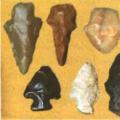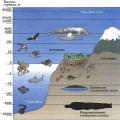Russian-Ukrainian translator Yandex. Free Russian-Ukrainian translation of texts online
In total, there are 45 million people in the world who know Ukrainian.
History of the Ukrainian language
The Ukrainian language belongs to the Indo-European family, from which Romance, Germanic, Celtic, Indo-Iranian, Baltic and Slavic groups emerged. TO Slavic group In addition to Ukrainian, there are Russian and other languages.
In their development, all European languages were subject to mutual influence, for example, the weakening of unstressed vowels and deafening of consonants at the end of a syllable came to the Russian language from the Finno-Ugric language. Linguists are inclined to think that the Slavic and Baltic languages have a common ancestor - the language of the tribes inhabiting the lands from the Dnieper to Baltic Sea. As a result of migrations, the unity of the tribes and, accordingly, the language disintegrated. The Proto-Slavic language began to stand out as a separate language when the “open syllable rule” appeared, that is, ending syllables with a vowel sound. This innovation determined the special sound of the language when alternating vowels and consonants. So the Baltic “kor-vas” turned into “ko-ro-vu”, and “drau-gas” into “dru-gi” (other), etc.
Proto-Slavic remained unified until the 5th-6th centuries. n. e., after which the Slavs began to actively settle in central Europe and form their own languages. The general rule of an open syllable in the formation of Slavic languages was not preserved in any of them, although traces remained in all. All modern Slavic languages differ, not least of all, in the different content of such syllables.
The result of linguistic evolution was the separation of the Proto-Slavic language into three subgroups: South Slavic (, etc.), West Slavic (Polish, etc.) and East Slavic (Ukrainian, Russian,). An important factor in the formation of individual languages was the formation of separate state formations and the penetration of borrowings.
Proto-Ukrainian dialects were divided into several dialects: Derevlyansky, Polyansky, Siveryansky, Ulichsky, Tiversky, etc. The existence of ancient Ukrainian dialects can be judged from written monuments of the 10th-12th centuries, but the sound is confirmed spoken language Of course not. The literary language of that period was Church Slavonic, brought from the Balkans. Cyril and Methodius translated the Bible into this language in the 9th century, but the Eastern Slavs, who preserved open syllables, were unlikely to use this language in communication. Scientists cite as an argument the mistakes and clerical errors of the scribes of that era, which unwittingly brought the Old Bulgarian language closer to the spoken language.
Since the middle of the first millennium, the appearance in the language of features characteristic only of the Ukrainian language can be traced. In all languages, the literary form is developed somewhat artificially, since its development is carried out by educators, writers, etc. In Ukraine in the 10th-18th centuries, the Ukrainianized Old Bulgarian language was used as a literary language. The literary monuments of that time were written in this artificial language. For example, “The Tale of Igor’s Campaign”, “The History of Time Literatures”, works by Grigory Skovoroda, etc. Over the centuries, the language has changed, approaching a colloquial form, grammar has been simplified, new words and borrowings have appeared.
The modern literary language is based on the Dnieper dialects. The language was formed in the first half of the 19th century. thanks to Kotlyarevsky, Grebinka, Kvitka-Osnovyanenko, Taras Shevchenko. The ancient language, which existed before the 13th century, has changed a lot, but it remains recognizable, and modern Ukrainians can understand it and identify it as Ukrainian.
In terms of its grammatical structure and lexical composition, Ukrainian belongs to the archaic languages, since many words are inherited from Proto-Slavic dialects, languages of neighboring peoples during trade relations, wars, etc. At the same time, the original Ukrainian phonetics and grammar have been preserved.
- The first mention of the Ukrainian language dates back to 858. The beginning of the existence of the literary form of the Ukrainian language is associated with the publication in 1798 of “The Aeneid” by Ivan Kotlyarevsky.
- The first Ukrainian poet whose works you can get acquainted with is Pavel Rusin, who lived in Krakow and Vienna in 1470-1517. and sang his love for his native land.
- “Zapovit” by Taras Shevchenko has been translated into 147 languages of the world.
- Most Ukrainian words begin with the letter “p”, and the most unused letter remains “f”, with which borrowings begin.
- First higher educational institution Ukraine – Ostroh Collegium (1576). The second in 1623 was the Kiev-Mohyla Academy. These higher schools were the only ones in Eastern Europe in the 17th century.
- The modern Ukrainian dictionary contains about 256,000 words. The most lexical matches are with the Belarusian language (84%), Polish (70%), Serbian (68%) and Russian (62%).
- Ukrainian is the only East Slavic language in which there are 7 cases (the seventh is vocative).
- There are many diminutive forms in the language; even the word “enemies” has the variant “vorozhenki”. The word “beat” has the most synonyms – 45.
- The first dictionary and grammar of the Ukrainian language were published in the 20-40s of the 19th century.
- The Ukrainian dictionary has preserved the ancient Slavic names of the months.
We guarantee acceptable quality, since texts are translated directly, without using a buffer language, using technology
Have you decided to visit Ukraine? This is not strange, because here you can find everything for a great holiday. Magnificent ski resorts and stunning landscapes of the Carpathians, the unique city of Odessa, which is distinguished by its unique mentality and wonderful beaches, ancient Lviv, which hides many secrets and mysteries and, of course, the unrivaled Kyiv, the cradle of Ukraine. Every city in Ukraine has its own zest, and if you decide to travel through the vastness of this country, you will definitely be satisfied and get a lot of good impressions.
During your journey, only one problem may arise; this is the language, which, although related to Russian, still has its own unique differences. In order not to get into an awkward situation, and to be able to speak with any Ukrainian, we have compiled a Russian-Ukrainian phrasebook, which contains a wide variety of words that you will need during your vacation.
Appeals and common phrases
| Hello hi | Hello, hurry up |
| Good morning | Good morning |
| Good afternoon | Good day |
| How are you? | How are you right? |
| OK, thank you | Good, darling |
| Sorry | I'm showing off |
| Goodbye | Until bachennya |
| I don't understand | I'm not understanding |
| Thank you | Dyakuyu |
| Please | Please |
| What is your name? | What is your name? |
| My name is… | Mene's name is... |
| Does anyone here speak Russian? | Is there anyone here who will tell you the Russian language? |
| Yes | So |
| No | Neither |
| I'm lost | I got lost |
| We did not understand each other | We are not the same one |
| I love you! | I'm kicking you! |
| How to say this by... | How can you say it all... |
| Do you speak… | What are you talking about... |
| English | In English |
| French | In French |
| German | In Nimetsky |
| I | I |
| We | We |
| You | You |
| You | You |
| They | Stinks |
| What is your name? | What is your name? |
| Fine | Good |
| Badly | Pojano |
| Wife | Druzhina |
| Husband | Cholovik |
| Daughter | Daughter |
| Son | Son |
| Mother | Curses, mom |
| Father | Father |
| Friend | Pryatelka (m), pryatelka (w) |
Numbers and numbers
Dates and times
Directions
Public places
| How much does a ticket to... cost? | How many koshtuye quotes to...? |
| One ticket to... please | One quotation until..., be kind |
| Where does this train/bus go? | Where is the direct route/bus? |
| Please can you show on the map | Please can you show me the mapi? |
| Do you have spare rooms? | Don't you have any rooms? |
| How much does a room cost for one person/two people? | How many koshtuye kimnata for one person/two people? |
| Is breakfast/dinner included? | Is the snidanok/vecherya included/a? |
| Give me the bill | Dite rahunok |
| How much does it cost? | Skilky tse koshtuye? |
| It's too expensive | Tse is expensive |
| Okay, I'll take it | Okay, I'll take it |
| Please give me the package | Give, please, package |
| Table for one person/two people please | Table for one person/two people, please |
| Can I see the menu? | Why can I look at the menu? |
| What is your signature dish? | What kind of brandy strain do you have? |
| Waiter! | Waiter! |
| Please give me the bill | Daite, be kind, rahunok |
| How much does it cost? | How many things do you cost? |
| What it is? | What's wrong? |
| I will buy it | I'll buy it all |
| You have…? | What are you saying...? |
| Open | Viewclosed |
| Closed | Intoxicated |
| A little, a little | Trochs |
| A lot of | Bahato |
| All | All |
| Breakfast | Snidanok |
| Dinner | Resentment |
| Dinner | Supper |
| Bread | Khlib |
| Drink | Torture |
| Coffee | Kava |
| Tea | Tea |
| Juice | Ovochevy sap |
| Water | Water |
| Wine | Vino |
| Salt | Sil |
| Pepper | will rub |
| Meat | Meat |
| Vegetables | Khorodyna |
| Fruits | Ovochi |
| Ice cream | Morozyvo |
Tourism
Attractions
Greetings, common expressions - a list of phrases and words that will help you communicate in common topics, the words collected here will tell you how to start a conversation, how to ask what time it is, introduce yourself and introduce your family, as well as other useful phrases in communication.
Numbers and numbers – here is the translation of numbers and numbers, as well as their correct pronunciation.
Shops, hotels, transport, restaurants - phrases that will help you easily find a bus stop, train station. station, find out where this or that route goes, order a hotel room, a dish in a restaurant, and the like. In general, a list of words and phrases that are necessary for any tourist.
Tourism - words with which you can explain to any passerby what exactly you are looking for, be it a hotel, an architectural monument, or any attraction.
How to get there - translation of words indicating direction and distance.
Public Areas and Landmarks - Correct translation and pronunciation of municipal facilities, landmarks, churches, etc.
Dates and times - translation and pronunciation of days of the week and months.
Entering text and selecting translation direction
Source text on Russian language you need to print or copy into the top window and select the translation direction from the drop-down menu.For example, for Russian-Ukrainian translation, you need to enter text in Russian in the top window and select the item with from the drop-down menu Russian, on Ukrainian.
Next you need to press the key Translate, and you will receive the translation result under the form - Ukrainian text.
Specialized dictionaries of the Russian language
If original text for translation related to a specific industry, select the topic of a specialized Russian lexical dictionary from the drop-down list, for example, Business, Internet, Laws, Music and others. By default, the dictionary of general Russian vocabulary is used.Virtual keyboard for Russian layout
If Russian layout not on your computer, use the virtual keyboard. The virtual keyboard allows you to enter letters of the Russian alphabet using the mouse.Translation from Russian.
The main language problem when translating from Russian into Ukrainian is the inability to achieve efficiency linguistic means, since the Russian language is oversaturated with frequent abbreviations and polysemantic words. At the same time, many long Russian sayings are translated into one or two words in Ukrainian dictionaries.When translating text from Russian, the translator needs to use words not only from the active vocabulary, but also to use language constructs from the so-called passive vocabulary.
As with any other language, when translating Russian text, remember that your task is to convey the meaning, and not to translate the text word for word. It is important to find in the target language - Ukrainian- semantic equivalents, rather than selecting words from the dictionary. The free online translator Transеr® will correctly translate words, phrases, sentences and small texts from any of the 54 foreign languages of the world presented on the site. The software implementation of the service is based on the most popular translation technology Microsoft Translator, so there are restrictions on text input of up to 3000 characters. Transёr will help overcome the language barrier in communication between people and in communications between companies.
Advantages of Transёr translator
Our translator is developing
The Microsoft Translator development team works tirelessly to improve the quality of translated texts, optimize translation technologies: dictionaries are updated, new ones are added foreign languages. Thanks to this, our Online Translator becomes better every day, copes with its functions more effectively, and the translation becomes better!Online translator or professional translation services?
The main advantages of an online translator are ease of use, speed of automatic translation and, of course, free!) To quickly receive a completely meaningful translation in just one click of the mouse and a couple of seconds is incomparable. However, not everything is so rosy. Please note that not a single automatic translation system, not a single online translator can translate the text with the same quality as a professional translator or translation agency. It is unlikely that the situation will change in the near future, therefore, in order to provide high-quality and natural translation - a company that has positively proven itself in the market and has an experienced team of professional translators and linguists.Entering text and selecting translation direction
Source text on Russian language you need to print or copy into the top window and select the translation direction from the drop-down menu.For example, for Russian-Ukrainian translation, you need to enter text in Russian in the top window and select the item with from the drop-down menu Russian, on Ukrainian.
Next you need to press the key Translate, and you will receive the translation result under the form - Ukrainian text.
Specialized dictionaries of the Russian language
If the source text for translation relates to a specific industry, select the topic of a specialized Russian lexical dictionary from the drop-down list, for example, Business, Internet, Laws, Music and others. By default, the dictionary of general Russian vocabulary is used.Virtual keyboard for Russian layout
If Russian layout not on your computer, use the virtual keyboard. The virtual keyboard allows you to enter letters of the Russian alphabet using the mouse.Translation from Russian.
The main language problem when translating from Russian into Ukrainian is the inability to achieve economical language means, since the Russian language is oversaturated with frequent abbreviations and polysemantic words. At the same time, many long Russian sayings are translated into one or two words in Ukrainian dictionaries.When translating text from Russian, the translator needs to use words not only from the active vocabulary, but also use language constructs from the so-called passive vocabulary.
As with any other language, when translating Russian text, remember that your task is to convey the meaning, and not to translate the text word for word. It is important to find in the target language - Ukrainian- semantic equivalents, rather than selecting words from the dictionary.
 What is matter in physics and chemistry?
What is matter in physics and chemistry? Poems “I go out alone on the road” M
Poems “I go out alone on the road” M How does the biosphere differ from other layers of the earth?
How does the biosphere differ from other layers of the earth?